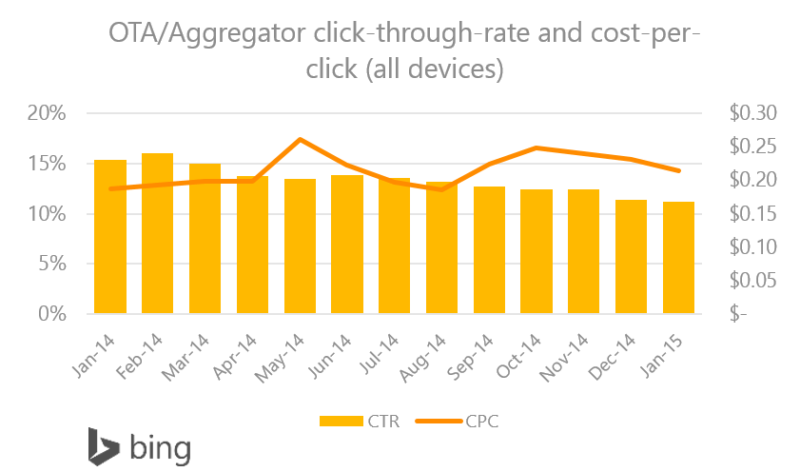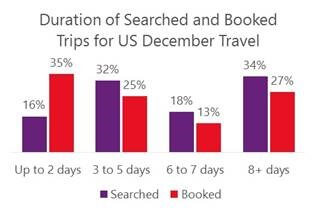6 Search Tips For Travel Advertising Success
Advertisers in the hospitality vertical, don't miss columnist John Cosley's essential tips for making your seasonal travel campaigns the best they can be.
After a brutal winter for much of the country, it’s finally starting to feel like springtime. Flowers are blooming, birds are chirping, and consumers’ thoughts are invariably turning to the promise of summer fun and adventure. For many, this means travel.
2015: A Stellar Year For Leisure Travel
Factoring in a slew of positive, travel-related economic indicators like low unemployment rates, gas prices lower than they’ve been in years, and a strong U.S. dollar, 2015 is shaping up to be a big one for families taking summer vacations.
In fact, according to Choice Hotels International, Americans plan to spend eight percent more on leisure travel this year and five percent more per trip than last year.
For digital marketers, all of this translates into an explosion of digital searches for travel. In fact, according to eMarketer, U.S. digital travel sales will top $153 billion — up almost six percent from 2014. Mobile travels sales will top $36 billion.
These are big numbers, and planning your digital search strategy is essential in order to capture the biggest share of this seasonal spend. Here are six essential tips for search marketers, sure to make your seasonal travel campaigns the best they can be:
1. Plan Campaigns & Allocate Budget For Two Seasonal Peaks: Summer & Winter
Travel-related searches peak at two key times each year: for summer and winter travel. The summer search peak extends from June through August and the winter search peak from December through January.
Plan accordingly, and have both campaigns and budgets ready to connect with leisure travelers when they are planning, researching and booking both their summer and winter vacations.
2. Online Travel Aggregators: Take Advantage Of High CTRs
People often conduct searches for their preferred online travel aggregator (OTA) sites such as Expedia, Priceline, Hotels.com, etc. The click-through rate (CTR) for all OTA-related searches is between 11 and 16 percent. For smartphone searches, the CTR is even higher — between 14 and 19 percent.
These high CTRs demonstrate that consumers are eager to click on search ads when they are looking for an OTA. With high CTR and low cost-per-click (CPC), these advertisers need to consider bidding on their own brand terms in order to prevent losing mindshare and conversions to competitors bidding on those terms.
Bing Ads research has shown that bidding on one’s own brand terms results in higher click yield, along with a decrease in the click yield for competitor ads. In other words, brand terms get more clicks and keep competitors at bay.
This research also found that bidding on the most prominent ad spot (“main line” or ML1) is particularly important for smaller advertisers.
3. Lodging: Target Last-Minute Bookers
Not surprisingly, many travelers book their plans at the very last minute. In fact, more than half the searches on hotel mobile websites take place within a week of a traveler’s booking window.
To address this short window of opportunity, lodging advertisers’ campaigns and ad copy need to address and target these time-sensitive consumers.
4. Make The Most Of Cross-Device Campaigns
Search engines have become a traveler’s best friend. According to an eMarketer report from November 2014, Business Travel 2.0: Millennial Behaviors Shift Travel Marketing Dollars, six in 10 leisure travelers use search engines to plan their trips — and they plan, research and book travel across multiple devices.
It’s critical that advertisers meet travel searchers wherever they are, whether that’s on a PC at work, a tablet at home, or a smartphone on the road. Campaigns and ad copy should be tailored for PC/tablets and smartphones to engage consumers as they research destinations and local attractions on any device, and at any time of day.
5. Get Ready For The “Mobile Majority”
The Yahoo Bing Network saw a 43 percent year-over-year increase in the number of smartphone searches related to Travel, and we expect that number to keep growing.
With 58 percent of travel spending occurring during a trip, it’s important for local advertisers to have mobile ads ready to capture nearby travelers. Adding Location and Call Extensions will drive relevant traffic to your mobile (or mobile-friendly) website, storefront, or reservation line, allowing consumers to easily contact you to learn more or make a reservation.
Advertisers with mobile apps can also add App Extensions to encourage mobile travelers to install their apps. By optimizing mobile campaigns, advertisers can target relevant audiences and better connect with leisure travelers.
6. Inspire Travelers To Stay Longer
Americans often search for longer vacations than they actually book, so it makes sense that the average American carried over 3.3 paid vacation days from 2014 to 2015. That’s $56.6 billion worth of paid vacation days!
How do you entice them to use those days, and stay just a bit longer? Advertisers can use ad copy and length-based special offers to inspire travelers to stay longer and use an extra paid vacation day or two.
With 2015 poised to be the best one in years for the travel industry, the upside for travel marketers is clear. Understand your customers, apply some proven insights and with a little luck (and good weather), you, too, can have the “best summer ever.”
Opinions expressed in this article are those of the guest author and not necessarily Search Engine Land. Staff authors are listed here.
Related stories



